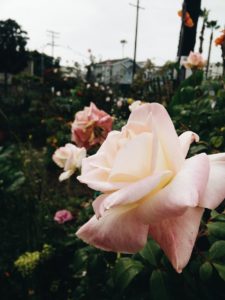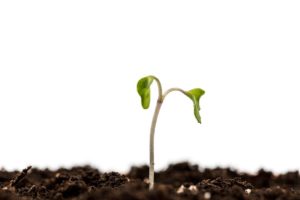A healthy, prosperous garden is what every gardener strives for. As we all know, when we fail to give our garden exactly what it needs, it can start to look a bit lackluster. Here at Garden Savvy, we believe the key to a thriving garden is eliminating common mistakes that could kill all the work you put into creating a home garden oasis.
Do you take pride in your garden but it’s just not living up to your expectations? What could you be doing wrong? Below are 10 ways you could be killing your garden, along with solutions to fix it.

10 Ways You Could Be Killing Your Garden
Overwatering or Underwatering
Plants need to be fed just like us, but we must be careful about overdoing it and underdoing it. The dilemma with watering your garden is if you overwater it, your plants will die from drowning and if you underwater it, they will die from dehydration. Don’t get overzealous! The tell-tale sign that your plants need water is in the soil. Check your soil; if it’s hard as a rock, it’s time for water.
Poor Design
Planning a garden is much more than choosing flowers or vegetables to plant, it’s also about a strategic garden layout. Your garden design should work cohesively with your property, not against it. For example, plants that need sun will not thrive in the shade, and trees planted too close to the house could potentially have to be cut down for safety. Map out a landscape design that will set up your home garden for longevity instead of planting for aesthetics.
Garden Pests
Garden pests like caterpillars, beetles, fungus and much more have the potential to wreak havoc on your prized garden. Even when maintaining an organic garden, using a pesticide to get rid of these garden pests is still possible. Use organic pesticides like rotenone, pyrethrum, nicotine, neem oil, and botanical pesticides to combat garden pests, forcing your plants to act defensively against these products of living organisms.
Weather
Pay close attention to the weather when gardening, particularly outdoor temperatures. Regardless of a flower garden or vegetable garden, certain regions of the world will be more favorable to different varieties of plants. Regionally adapted plants are the way to go, but it’s necessary to protect your plants from unpredictable weather by being prepared. In the cold winter months, cover your plants to avoid freezing and in the hot months, provide adequate watering and mulching.
Overcrowding
Another common gardening mistake is overcrowding your plants or vegetables. Give your plants the space they need to grow healthy and strong by not suffocating them with larger plants or plants that are too close in proximity. Pay attention to the height and width parameters of your fully grown plants, which will give you a good idea of how much space to leave in between. It’s better to underplant at first than to set yourself up for failure by overcrowding your garden.
Garden Soil
 The soil is the foundation of your garden, so it’s important to test it so you know what you’re working with. Feed your soil with organic nutrients like compost and make sure your soil conditions are loose and moist. Since soil conditions vary per region, make it a point to test your soil every year with an at-home test kit and adjust accordingly.
The soil is the foundation of your garden, so it’s important to test it so you know what you’re working with. Feed your soil with organic nutrients like compost and make sure your soil conditions are loose and moist. Since soil conditions vary per region, make it a point to test your soil every year with an at-home test kit and adjust accordingly.
Planting Too Early or Too Late
There can be issues with both planting too early or too late in a season, and therefore running the risk of ruining your garden by unexpected weather conditions. For instance, if you start planting prematurely in the spring, there’s a chance that a late cold front or frost could wipe out your hard work. In this case, wait until after the latest possible frost could arrive to start your spring garden.
Plant Hole Not Deep Enough
Giving your plants enough room to form healthy roots depends on how deep you dig holes before planting. By failing to dig a deep enough hole, you risk stunting the growth of your plants. Avoid this common gardening mistake by digging your holes twice as deep and wide to ensure more rapid growth.
Too Many Seeds
Spreading too many seeds can lead to oversaturation. Sometimes too much of a good thing can be bad! Vining plants tend to grow invasively, so make sure you check the specifications of the kinds of seeds you’re planting to make sure you’re not planting too many. It would be a waste of gardening efforts and money to plant too many seeds, only to have to get rid of some of the yield it produces.
Pesticide Overload
While organic pesticides can be helpful to your garden, on the contrary, pesticide overload can be detrimental to it. Pesticides remain in the soil for a long period of time and can poison the foundation of your garden and contaminate the earth to boot. In addition, the pesticides might wipe out the pollinators needed to maintain a healthy garden system. If you need some new pesticide, checking our gardening supplies suppliers.
Recent Posts
- Smart Gardening: How Technology Is Revolutionizing Horticulture
- Understanding Gardening Zones: What You Need to Know
- The Right Tools For Your Gardening And Landscaping Needs
- Maximizing Your Harvest: Square Foot Gardening Chart for Beginners
- Holiday Garden Scents: Plants for Natural Aromatherapy in Your Home






